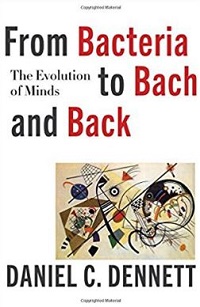TRANSLATE THIS ARTICLE
Integral World: Exploring Theories of Everything
An independent forum for a critical discussion of the integral philosophy of Ken Wilber
 Since 1990 Gary Stogsdill has been a faculty member at Prescott College where he currently teaches courses in humanistic mathematics, science appreciation, and wisdom studies. He has a blog called " Pursuing Wisdom Now", which features articles on contemporary spirituality.
SEE MORE ESSAYS WRITTEN BY GARY STOGSDILL
The Life Problem
A Response to Visser's
"What's It Like to Be a Super-Nova?"
Gary Stogsdill
We don't need to push the Sisyphean stone of meditation uphill every day for countless years, or even lifetimes, for the purpose of becoming enlightened.
I read with appreciation Frank Visser's recent essay “What's It Like to Be a Super-Nova? Ken Wilber's Cosmic Approach to the Mind-Body Problem.” Because I had just finished an essay titled “Connected Spirituality: Belonging to the World We Live In,” I found myself wondering if the notion of connected spirituality might contribute anything to the mind-body problem.
By connected spirituality I mean the attempt to fulfill and express our inner need for deeper meaning and purpose by focusing not on mind but on life as the sacred mystery at the core of spirituality. This simple shift of focus removes spirituality from the endless conceptualizations of our intellect and from the perennialist fixation on meditation and altered states of consciousness, and instead places spirituality in the immediate and felt sense of embodied aliveness.
In other words, life itself is a spiritual event. We don't need to push the Sisyphean stone of meditation uphill every day for countless years, or even lifetimes, for the purpose of becoming enlightened. We don't need to renounce our desires, we don't need to practice austerities, and we don't need to believe in anyone's roadmap to salvation. All we need to do to experience connected spirituality is be alive. Well, okay, maybe a little bit more than that including
- realizing that mysteries exist;
- feeling wonder and awe in the face of these mysteries;
- feeling a sense of belonging right here on planet earth because a deeper reality has brought forth the universe and life, and therefore us; and
- attempting to relate to this deeper reality.
That's what I wrote about in the essay “Connected Spirituality.”
For this current essay, we can understand the mind-body problem as the dilemma of how something immaterial, our mind, can influence something material, our body, and vice versa. Many scientists and philosophers resolve this problem by viewing mind as just another word for what our brain does. In that view, mind has no ontological reality; rather it's a helpful illusion created by brains and bodies. Many perennialists resolve this problem in the opposite direction, viewing our brain, body, and the rest of physical reality as a creation of mind or consciousness. In this view, mind is the real deal, and bodies are some manner of illusion.
Visser does a compelling job of showing that Ken Wilber offers a more nuanced approach by viewing both mind and body as expressions of a more fundamental reality, and in the process Wilber identifies multiple minds and multiple bodies. In Visser's analysis, this does not resolve the mind-body problem and instead multiplies it. How can we find a way out of the mind-body problem without denying the reality of one side of the equation and without making the problem more complicated? Following are a few thoughts from the perspective of connected spirituality.

Most of the thinkers who tackle the mind-body problem—scientists, philosophers, spiritual pandits—tend to over-exaggerate the distinction between the human mind and the mind of other animals. Here's the philosopher Daniel Dennett in From Bacteria to Bach and Back: The Evolution of Minds: “Our human minds are strikingly different from the minds of all other species, many times more powerful and more versatile” (p. 9). Dennett later admits that this sounds like human exceptionalism, and then without skipping a beat hammers the exceptionalism even stronger: “Of course our minds are orders of magnitude more powerful than the cleverest animal mind!” (p. 11). Why? Because “no animal creates art, writes poetry, derives scientific theories, builds spaceships, navigates the oceans, or even tames fire” (p. 11).
This means Dennett is claiming exceptionalism for the human mind because of its creative capacity and its rational intellect. Yes, we have definitely unfolded capacities of mind that other animals have not developed. But other species have minds that clearly show abilities our human mind lacks. I would like to invite anyone who feels compelled to gloat about their orders-of-magnitude superior mind to go into the habitat of any wild animal and survive there for one year with only their mind and nothing else, as the animals themselves do.
My point is to suggest that mind is a multifaceted expression that includes a wide variety of abilities and intelligences. We humans should of course fully express our creative and intellectual capacities that add meaning, agency, and a measure of uniqueness to our human lives, but we also need a healthy dose of humility to put our creative and intellectual abilities—and ourselves—in perspective.
This tendency to over-exaggerate the superiority of the human mind is partly what creates a mind-body problem in the first place. If we recognize that all living beings have at least the potential for mind, then we may be able to make headway with the mind-body problem. Even Dennett concedes that “all organisms, from single cells to elephants, have a rudimentary 'sense of self'” (p. 343). The New Oxford American Dictionary defines mind, in part, as “the element of a person that enables them to be aware of the world and their experiences.” What is it that enables us to be aware of an external reality (the world) and an internal reality (our experiences)? It's our sense of self.
If we remove the inherent human bias from the above dictionary definition of mind, we arrive at a more all-encompassing understanding that mind is the capacity of any organism to be aware of an external and internal reality by virtue of having a sense of self. This would suggest that mind is a natural component of life. And this would lead us back to the foundation of connected spirituality as focusing not on mind but on life as the sacred mystery.
This would also give us a more fundamental life-body problem instead of a mind-body problem. Or would it? Does any body exist without life? When we see such a thing, we call it a dead body and we recognize that it is completely different from what it once was. Anyone who has witnessed the death of a loved one has seen the shocking contrast between a living body and a dead one. Bodies are grown by life, sustained by life, and expressed by life. A body is life until that life is gone; then it's just matter. A dead body is not part of either the mind-body problem or the life-body problem.
Perhaps we should be asking ourselves how life is able to grow a living body, sustain a living body, and express a living body…and to do all of this with the natural component of a sense of self called mind. This is the life problem. Visser asked in his “Super-Nova” essay: “What on earth (or heaven) can have such different aspects as mind and body?” Maybe life.
I suggested in the essay “Connected Spirituality” that life may be an ultimate mystery beyond the scope of intellect. Life may be what scientists call a singularity, a term most often used to describe the existence of our universe itself through the Big Bang. The word singularity means that scientists don't know how to explain something that clearly exists.
The fact that there is something instead of nothing and the fact that there is life may reveal two of the ultimate mysteries that suggest our human mind is not able to figure everything out. But having the singular gift of life in an awe-inspiring universe may be enough.

|
 Since 1990 Gary Stogsdill has been a faculty member at Prescott College where he currently teaches courses in humanistic mathematics, science appreciation, and wisdom studies. He has a blog called "Pursuing Wisdom Now", which features articles on contemporary spirituality.
Since 1990 Gary Stogsdill has been a faculty member at Prescott College where he currently teaches courses in humanistic mathematics, science appreciation, and wisdom studies. He has a blog called "Pursuing Wisdom Now", which features articles on contemporary spirituality.

